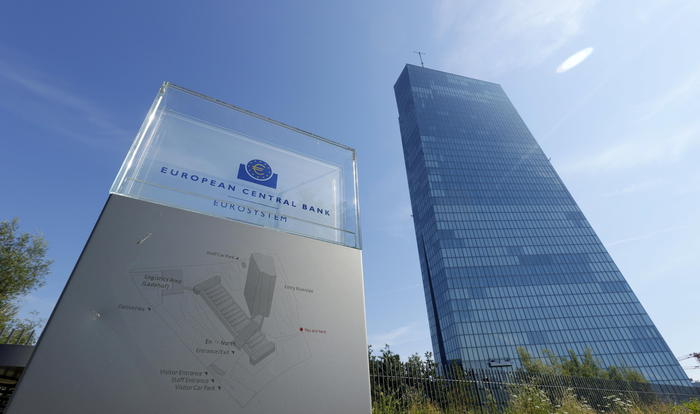A sharp decline in the fourth quarter, "serious risks" for growth because "it will take time" to clear the economic uncertainty of the pandemic and the lockdown.
And a harsh recession for transport, tourism and services in general, so much so that the ECB has made a veiled note of caution on the demands of Brussels to pay attention to the debt: the recovery must be saved by continuing to run a deficit.
The first official release of the ECB of the year, after the record fall of GDP in 2020, comes with the economic bulletin.
Where the fear of the 'cliff effect' already mentioned at the end of 2020 becomes more and more explicit: a drastic and sudden fall in economic activity, with the permanent loss of productive fabric against which it is necessary to "extend the temporary measures" of support through the public spending which, with recovery funds and national budgets, are supporting Frankfurt's record monetary stimulus.
For the fourth quarter of 2020, moreover, the ECB openly predicts that the second wave of the virus, and the intensification of containment measures starting from mid-October, will determine "a new significant decline in activity in the fourth quarter", albeit less the record 'blow' of the spring months.
While waiting for the recovery fund to become truly operational - and it will take time - the exhortation applies to everyone, from Germany with its large budget margins, to Italy with its explosive debt.
The peninsula's deficit, with Spain and France, will also be at the top of the ranking of euro countries in 2021, above 7.5%.
Frankfurt bears in mind the fears of the EU Commission for the medium-term sustainability of the debt of countries like Italy and on some measures that "do not seem to be of a temporary nature".
It is not clear whether the reference is also to unemployment benefits and record levels of layoffs, where the ECB itself advocates time limits.
But, as if to interpret the Brussels documents, Eurotower explains that "the Commission's assessment must be considered in light of the significant and divergent impact that the severity of the shock caused by Covid-19 and the budgetary support measures are having. on public finances, but also in light of the high prevailing uncertainty ".
It is a request to insist on dual fiscal and monetary stimulus, which avoided an even worse recession and which saw the ECB, in December, relaunch Pepp purchases that artificially keep the cost of debt low to 1,850 billion euros. Italian and other countries, to extend its duration, to strengthen the stimulus to credit the economy through the Tltro maxi-loan.
First it is necessary to defend the economy from the risk of a significant number of companies disappearing, then we will think about debt.
Frankfurt, indeed, increases the dose, reiterates that it is ready to put its arsenal again, in the face of very weak inflation, well below 1%, even net of the German VAT cut.
There are, of course, also banks in the equation to keep in mind and which sees high risk of chain business failures.
And one of the imperatives of the ECB is to prevent the banks, which amid moratoriums and public guarantees have lent a hand in the pandemic rather than representing one of the main problems as ten years ago, from returning to the eye of the storm.
The president of the Banking Supervisory Council, Andrea Enria, estimates the NPLs that the pandemic could potentially leave behind at something like 1,400 billion euros.
He has long pushed for a network of bad banks to take on the problem.
The issue of impaired loans, as well as the new regulatory framework on the classification of loans in default, on the timing of the reduction of NPLs, and the urgency to complete the banking union, were today on the table during a videoconference that today Enria held with Charles Michel, president of the European Council, and with the president of the Single Resolution Board, the bank liquidation management body: a sign that even among banks there could be victims.
(HANDLE).

